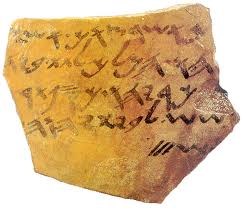The Second Sunday in Lent - 4 March 2012

The Second Sunday in Lent - 4 March 2012 Genesis 17:1-7, 15-16 Psalm 22:22-30 Romans 4:13-25 St. Mark 8:31-38 Background: Names for God Several names for God surface as we read through the cycles of the Pentateuch (The Five Books of Moses). Some will be familiar, while others will not be, having been translated into terms in English, that mask their meaning or original usage. The most common is YHWH, which forms an unpronounceable word that is now transliterated as Yahweh. Since it was not to be pronounced, the reader would substitute Adonai (Lord) instead. Other forms and names are: Ehyeh-Asher-Ehyeh , (I will be what I will be) spoken to Moses at the Burning Bush. We see another name for God, Yah, especially in proper names that end in God’s name, such as Elijah, or Adonijah, or in the ending of the phrase Hallelujah (Praise be to God.) Elohim (translated as “God” although it is actually a

